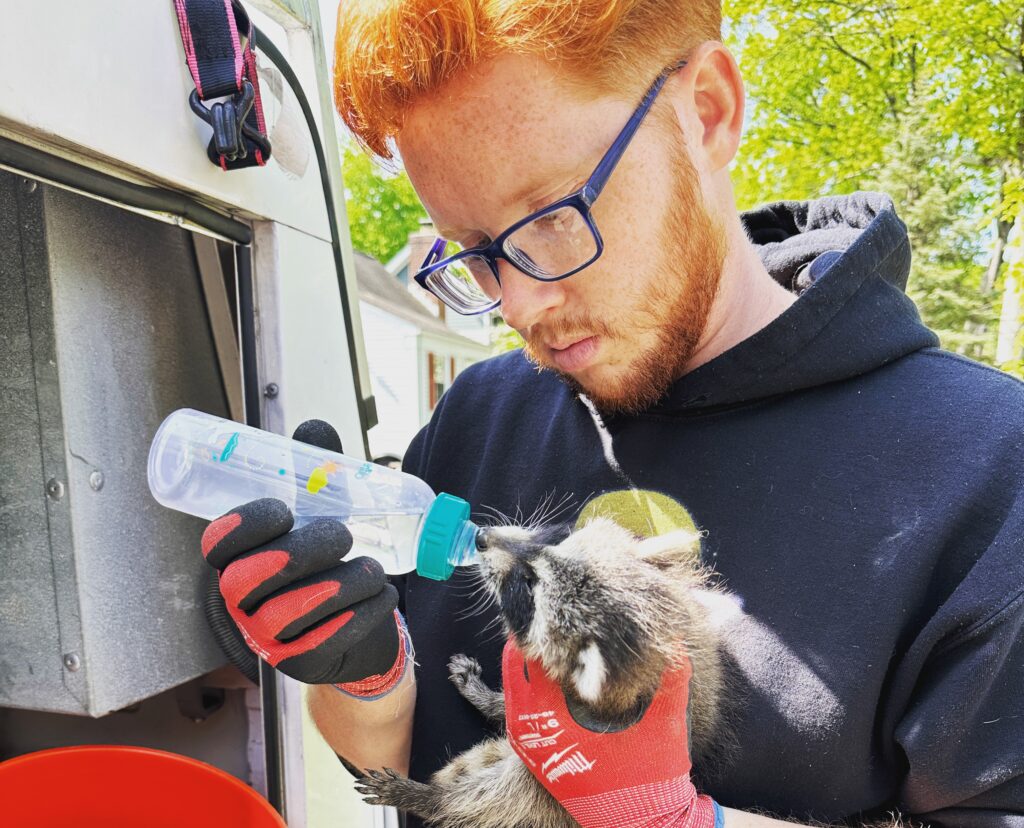As we embark on a new year, it’s crucial to address challenges that might compromise the well-being of our homes and communities. One such concern, particularly prevalent in the state of New Jersey, is the persistent issue of rodent infestations, specifically rats. In this comprehensive guide, we delve into the intricacies of rat control in the Garden State, exploring effective strategies to safeguard our living spaces from these unwelcome intruders.
New Jersey’s diverse landscapes, from bustling urban areas to suburban neighborhoods, create an environment that rats find enticing. The need for robust rodent control measures becomes evident as these adaptable creatures exploit various factors to establish their presence. In this context, our focus is on empowering residents with the knowledge and tools needed to combat rat infestations proactively.
Throughout this guide, we will incorporate the essential keyword seamlessly: Rat Control in New Jersey, Rat Control NJ. As we discuss the intricacies of rat prevention and elimination, this keyword will naturally find its place in the content, ensuring that the information remains both informative and relevant to residents seeking effective solutions. Join us on this journey as we explore the nuances of rat control, fostering a rat-free environment for New Jersey in the year ahead.
Key Takeaways
- Swiftly identifying signs of rat infestation allows for timely intervention, preventing widespread issues.
- Regularly inspect and seal potential entry points to keep rats out, maintaining a rat-resistant living space.
- Implementing DIY rat control methods, such as proper waste management, is a proactive step toward a rat-free environment.
- Seeking professional rat control services guarantees expertise and comprehensive solutions for long-term prevention.
- Engaging in community-wide efforts creates a united front against rat infestations, fostering safer and healthier living spaces.
Understanding the Rat Menace in New Jersey
In comprehending the rat menace in New Jersey, it’s essential to delve into the diverse species that navigate our state’s landscapes, posing potential threats to our homes and communities. New Jersey is home to common rat species such as the Norway rat and the roof rat, both adept at adapting to urban and suburban environments. These rodents are not merely nuisances; they can bring about significant health hazards and structural damage.
Rats thrive in various conditions, taking advantage of human habitation to find food, water, and shelter. This adaptability makes them formidable invaders, often exploiting the proximity of homes and businesses. The need for rat control in New Jersey is paramount, considering the potential consequences of an unchecked infestation.
Throughout our exploration of the rat menace, the keyword Rat Control in New Jersey, Rat Control NJ, naturally integrates into the narrative. It serves as a guiding principle, emphasizing the urgency of addressing and mitigating the risks associated with rat infestations in the diverse landscapes of the Garden State. Stay with us as we uncover the nuances of the rat menace and discuss effective strategies to safeguard our homes from these adaptable intruders.
Environmental Factors Contributing to Rat Infestations
Understanding the environmental factors that contribute to rat infestations in New Jersey is crucial for devising effective rat control measures. One significant aspect is the landscape of urban and suburban areas, providing ample hiding spots and potential nesting sites for rats. In densely populated regions, the proximity of buildings and an abundance of waste can create an ideal environment for these rodents.
Climate also plays a role, as rats seek shelter in both warm and cool weather. New Jersey’s varied climate, with hot summers and cold winters, allows rats to thrive year-round, necessitating a comprehensive approach to rat control.
Additionally, the accessibility of food sources contributes to rat infestations. Garbage disposal practices, food spillage, and improperly stored pet food can attract rats, creating a persistent challenge for residents. Recognizing and addressing these environmental factors are integral to developing sustainable solutions for rat control in New Jersey.
Signs of Rat Infestation
Recognizing the signs of a rat infestation is paramount in implementing timely and effective rat control measures in New Jersey. One tangible indicator is the physical evidence left behind by these rodents. Gnaw marks on various surfaces, shredded materials, and droppings are telltale signs of rat activity. Residents should be vigilant in identifying and addressing these signs promptly to prevent the escalation of an infestation.
Behavioral cues also provide insights into potential rat presence. Nocturnal activities, such as hearing scratching sounds in walls or ceilings during the night, may indicate a rat infestation. Unusual pet behavior, such as heightened alertness or agitation, can also be an indirect sign of rodent activity.
Early detection is crucial, as rats reproduce rapidly. In our exploration of these signs, the keyword Rat Control in New Jersey, Rat Control NJ, seamlessly becomes part of the narrative. Emphasizing the importance of recognizing these indicators, we underscore the urgency of proactive measures to curb rat infestations and protect homes in the diverse landscapes of the Garden State. Join us as we unravel the signs that demand attention and explore strategies for effective rat control in New Jersey.

DIY Rat Control Methods
Taking matters into your own hands with DIY rat control methods can be a proactive and cost-effective approach for New Jersey residents facing rodent issues. One fundamental step is identifying and sealing potential entry points, preventing rats from infiltrating your home. Conduct a thorough inspection of your property to identify gaps, cracks, or openings that may serve as access points for these pests.
Eliminating attractants is another crucial aspect of DIY rat control. Properly storing food, sealing garbage bins, and cleaning up crumbs can significantly reduce the incentives for rats to invade your living space. Additionally, consider using natural deterrents like peppermint oil or vinegar, as these can act as repellents for rodents.
Throughout this DIY rat control discussion, the keyword Rat Control in New Jersey, Rat Control NJ, naturally integrates into the content. By emphasizing the importance of these methods tailored to the unique challenges in the Garden State, we empower residents to take proactive steps in addressing rat infestations at the grassroots level. Join us as we explore practical, do-it-yourself strategies for effective rat control in the diverse landscapes of New Jersey.
Professional Rodent Control Services in New Jersey
Engaging professional rat control services in New Jersey is a strategic move for residents seeking comprehensive solutions to address and mitigate rodent infestations. Pest control professionals bring a wealth of expertise to the table, equipped with the knowledge to identify the extent of the problem and implement targeted measures. Their proficiency in using specialized tools and techniques ensures a thorough and effective approach to rat control.
Moreover, professional services offer the advantage of long-term prevention. Beyond mere extermination, these experts can provide valuable insights into preventive measures, helping to fortify your property against future infestations. Their experience in dealing with various rat species prevalent in New Jersey ensures a tailored and efficient response.
In the context of discussing professional rat control services, the keyword Rat Control in New Jersey, Rat Control NJ, seamlessly integrates into the narrative. Emphasizing the significance of these services in the specific context of the Garden State, we highlight the importance of seeking professional assistance to address rat infestations comprehensively. Join us as we explore the advantages of professional rat control services, contributing to a rat-free living environment in New Jersey.
Legal Considerations and Regulations
Understanding the legal considerations and regulations surrounding rat control in New Jersey is crucial for residents and property owners alike. The state has enacted specific laws to address pest infestations, emphasizing the responsibility of property owners to maintain a rat-free environment. Neglecting rat infestations not only poses health risks but may also lead to legal consequences.
Rat Control in New Jersey, Rat Control NJ, is not just a matter of personal preference but a legal obligation. Property owners are required to take proactive measures to prevent and address rat infestations promptly. This involves maintaining a clean and sanitary environment, promptly addressing structural issues that may facilitate rodent entry, and collaborating with professional rat control services when necessary.
By incorporating the keyword seamlessly into this discussion, we underscore the legal framework that supports the imperative for rat control in New Jersey. It serves as a reminder that compliance with regulations is not only in the best interest of individual households but also contributes to the collective well-being of communities across the Garden State. Join us as we explore the legal landscape surrounding rat control and the responsibilities it entails for New Jersey residents.
Community Involvement in Rodent Control
Encouraging community involvement in rat control initiatives is a powerful strategy to foster a rat-free environment in New Jersey. As residents share common spaces, collaboration becomes essential in addressing the collective challenge of rodent infestations. Rat Control in New Jersey, Rat Control NJ, should not be viewed solely as an individual responsibility but as a community-wide effort.
By raising awareness and fostering a sense of shared responsibility, communities can work together to implement preventive measures and promptly address rat infestations. Establishing neighborhood watch programs, where residents collectively monitor and report potential issues, can be a proactive approach. Additionally, sharing information and resources on effective rat control methods can empower neighbors to take informed actions.
Throughout our exploration of community involvement, the keyword seamlessly integrates into the narrative, emphasizing the collective nature of rat control efforts in the Garden State. Join us as we delve into the importance of community engagement, underscoring how united actions can contribute to a rat-resistant and thriving living environment in New Jersey.
FAQs
How do I identify signs of a rat infestation in my home?
Look for gnaw marks, droppings, and unusual pet behavior. Scratching sounds in walls or ceilings during the night can also be indicators.
What are common entry points for rats in a house?
Rats can enter through gaps in doors, windows, vents, and cracks in the foundation. It’s crucial to seal these entry points to prevent infestations.
When is the best time to seek professional rat control services?
It’s advisable to contact professionals as soon as signs of infestation are detected to prevent the problem from escalating.
Can rats pose health risks to my family?
Yes, rats can transmit diseases through their droppings and urine, posing potential health risks to humans and pets.
How can I prevent rats from returning after professional extermination?
Seal entry points, eliminate attractants, and follow the recommendations of professionals to create an environment resistant to rat re-infestations.
Conclusion
In conclusion, as we navigate the intricacies of rat control in New Jersey, it becomes evident that safeguarding our homes and communities requires a multifaceted approach. The importance of Rat Control in New Jersey, Rat Control NJ, is not merely a response to a nuisance; it’s a commitment to ensuring the well-being of our living spaces.
From understanding the nuances of the rat menace to implementing DIY measures and seeking professional services, residents play a crucial role in maintaining a rat-free environment. Legal considerations underscore the collective responsibility we share, reinforcing the need for compliance and vigilance.
As we conclude this exploration, we invite you to take proactive steps in rat control. For expert assistance, reach out to Kritter Catchers at (973) 747-5455. Let’s work together to ensure a rat-resistant New Jersey, creating safer and healthier communities for all.


